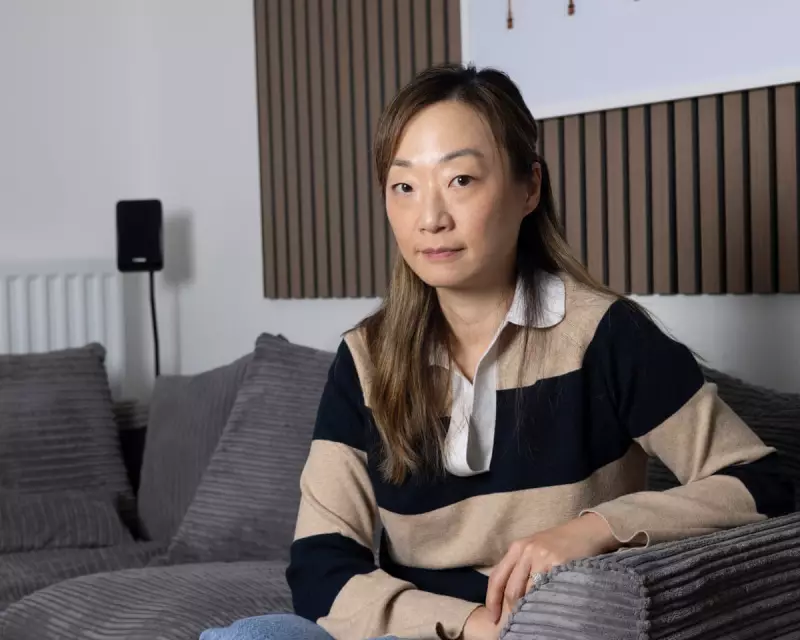
NHS Frontline Doctor Faces Uncertain Future Under Proposed Visa Rules
As Reform UK gains significant traction in opinion polls, migrant communities across Britain are confronting profound uncertainty about their futures. The party's hardline immigration policies, including plans to abolish indefinite leave to remain and implement substantially higher salary thresholds for skilled worker visas, threaten to upend the lives of thousands who have built their homes in the UK.
Dr Jinnie Shin, a 44-year-old emergency medicine registrar from the United States, embodies this growing anxiety. Having arrived in Britain as a medical student in 2015, she found herself on the NHS frontline during the Covid-19 pandemic's darkest days, working twelve-hour shifts treating critically ill patients at Croydon University Hospital.
The Human Cost of Changing Immigration Policies
Dr Shin now faces the possibility that her years of service and personal sacrifice might count for little under proposed new rules. Despite becoming eligible for indefinite leave to remain - the right to settle permanently after five years' residence - she questions whether paying the £3,000 application fee is worthwhile if Reform could rescind settled status after the next general election.
The potential raising of skilled worker visa salary thresholds to approximately £60,000 annually presents another formidable barrier. As an emergency medicine registrar beginning specialist training, Dr Shin earns £52,656, while newly qualified doctors start on just £38,831. Such changes would effectively exclude many medical professionals from continuing their UK careers.
"You are basically talking about culling doctors who will eventually become our registrars and consultants," Dr Shin stated. "This sort of move would eliminate the foot soldiers of the NHS."
Broader Impact on Skilled Migrants Across Industries
The uncertainty extends far beyond healthcare. Sid Shyamsundar, a 31-year-old human factors engineer from India, describes 2024 as "the hardest year I've had to face." Since arriving in 2021 for his "dream job" enhancing Britain's defence capabilities, he and his graphic designer wife have built their life in Bury, Greater Manchester.
Despite being due to apply for indefinite leave to remain in April 2025, Shyamsundar experiences constant anxiety about whether this will guarantee his long-term future. He acknowledges he wouldn't meet the proposed £60,000 salary threshold for skilled worker visas.
"It's like a death by a thousand cuts," he revealed. "Walking along in the autumn, seeing the leaves fall, and thinking, I might not be here next autumn. That's what really breaks your heart."
Refugees and Long-Term Residents Face Deportation Fears
For Douna Haj Ahmed, a 34-year-old Syrian refugee working for a multiple sclerosis charity, the proposed policies threaten to destroy the stability she has carefully constructed since arriving in 2017. Having never claimed benefits, she and her husband Abdullah al-Nofal have bought a house in Wembley and immersed themselves in British life through charity work and community engagement.
"Throughout these years, my husband and I have contributed to the economy and society without ever relying on the state," Haj Ahmed explained. "We have integrated fully into British society and British life."
The couple's application for indefinite leave to remain has been complicated by recent regime change in Syria, where Mr al-Nofal was previously detained in the notorious al-Khatib prison. Returning to Syria remains unthinkable due to ongoing violence and human rights concerns.
Sayali Wandhekar, a 30-year-old designer from India now living in Camden, faces similar uncertainty. Having moved to London for a master's degree in 2020 before securing corporate employment, she hoped to apply for indefinite leave to remain in 2027. The constantly "shifting goalposts" on immigration rules now make long-term planning impossible.
"I want to be here long term," Wandhekar said. "I've made a life here. I have a strong friend group. I have a proper life. But am I going to buy a house, settle here, have children here? It's something I can't plan for."
Potential Brain Drain and Economic Consequences
These individual stories reflect a broader concern about potential brain drain if skilled workers cannot secure permanent settlement rights. Wandhekar notes that most of her social circle - professionals in engineering, finance, and consulting - would likely leave the UK if indefinite leave to remain were abolished.
Dr Shin has also observed increasing "microaggressions" directed at doctors of colour, compounding her sense of unwelcome. Health Secretary Wes Streeting recently acknowledged the "ugly" racism experienced by some NHS workers.
"As someone who, every day, goes in and takes care of the people of the UK - some of these people, what if inside they're thinking: I'd rather have a white, English, male doctor?" Dr Shin questioned. "It's an uncomfortable situation to be in."
Despite her deep connections to Britain - including a partner settled in the UK for two decades - Dr Shin confesses: "I hate to think staying in the UK would be a bad decision, but it's looking less and less like a good one. I would love to stay, because I've built my life here, but I don't really feel that welcome any more."





